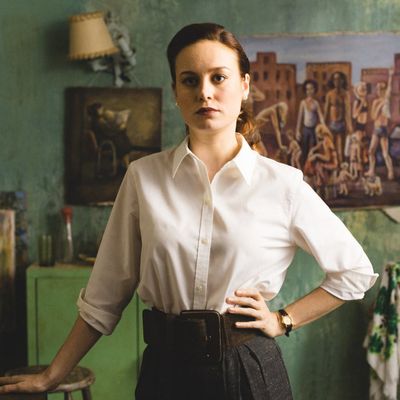
It can be tough for someone in my position to admit that, sometimes, movies are just not up to a task. I have not read Jeannette Walls’s 2005 best seller The Glass Castle: A Memoir, but my understanding is that much of its appeal is in the straightforward way she presents often distressing facts of her childhood, neither sentimental nor judgmental in her framing. Filming an adaptation is a tricky line to walk for a book with that kind of personal yet journalistic tone, where the author invites you to form your own conclusions given all the information available, literally creating a vicarious experience. In its short life, narrative film has often been used as a means to provoke a specific emotional reaction in the viewer. Children in danger have always been a particularly effective staple.
Director Destin Daniel Cretton was able to pull off an emotionally effective frankness in his debut feature Short Term 12, drawing on his real-life experience working at a home for troubled teens. His follow-up, a significantly altered screen adaptation of Walls’s account of her life is, by comparison, a longer game of telephone. I tend to care more about emotional truths over factual ones when it comes to films based on real events, but The Glass Castle is the kind of film that flashes images of the real-life characters over its end credits, as supposed credentials for its veracity. It wants you to know that all this more or less really did happen; it also can’t help but attempt to tie an emotional bow around the messiness of real life, and to offer a heartwarming thesis about a childhood that was clearly full of contradictions.
The film opens with Jeannette (Brie Larson, whose turn in Cretton’s debut arguably put her star on the rise) and her accountant fiancé David (Max Greenfield) wooing a potential client at a fancy Manhattan restaurant in 1989. With her warm twang and juicy stories from her career as a gossip columnist, it’s clear Jeannette is a vital part of David’s business, but the conversation turns slightly awkward when the subject of her family comes up. That night during the cab ride home, she nearly runs into a homeless couple who turn out to be her parents, and then the story of her childhood comes tumbling out.
Jeannette, we learn, grew up with her artist mother Rose Mary (Naomi Watts), alcoholic father Rex (Woody Harrelson), and three siblings in a near-constant state of itinerancy, bouncing around from town to podunk town in their beat-up station wagon. Rose Mary and Rex’s parenting philosophy could charitably be called unstructured; negligent is probably more accurate. The first scene we see of Jeannette’s childhood is her around the age of 4, horrifically burning herself after Rose Mary refuses to stop painting to boil a hot dog for her and tells her to do it herself. It’s an infuriating scene to watch, and it’s a testament to Cretton’s direction and Watts’s performance that we don’t spend the rest of the film hoping for Rose Mary’s violent comeuppance. Instead, we very quickly learn that being a Walls is a roller coaster in both emotional and practical ways.
The figurehead of Jeannette’s flashback sequences (which span years and comprise the majority of the film) turns out to be Harrelson’s Rex, the charismatic cult leader of this nomadic brood, who inspires and frightens his wife and children in equal measure. Harrelson is an inspired piece of casting, able to play both the brave and cowardly sides of his character, often at the same time. He’s anxiety personified, taking up all the space and oxygen in the room, in a mode similar to the nonstop proclamations of Denzel Washington in last year’s Fences. (Harrelson’s hair, on the other hand, is a much more enigmatic presence in a film full of truly … striking … wigs and styling.) He makes a man who both nearly drowns his daughter while trying to teach her how to swim (a genuinely terrifying scene) and “gives” her Venus for Christmas (a genuinely sweet scene) make ineffable dramatic sense.
But what are we meant to feel? As the film ping-pongs between the past and the “present” of 1989 and starts to close in on its takeaway “message,” I grew exponentially more uncomfortable. It seems to me The Glass Castle could function perfectly well as a depiction of a childhood on the fringes, and Jeannette’s eventual escape to New York as a bittersweet but necessary step. The film makes it clear: Jeannette doesn’t hate her father, even though he did so many things that those of us watching from the comfort of our theater seats can say we wouldn’t stand for. Family is complicated, this one especially. But when The Glass Castle throws all this nuance out for a swelling score and a tearful tribute to its inspiring patriarch, the film unmasks itself as something much more absolutist, and part of me can’t help but wonder what the last two hours were meant to establish. Many filmgoers will see Rex and Rose Mary as unforgivable, and even those of us willing to accept that there are many different shades at work here will likely feel the foundation of the film fall out from under us by its conclusion. How appropriate, I suppose.




